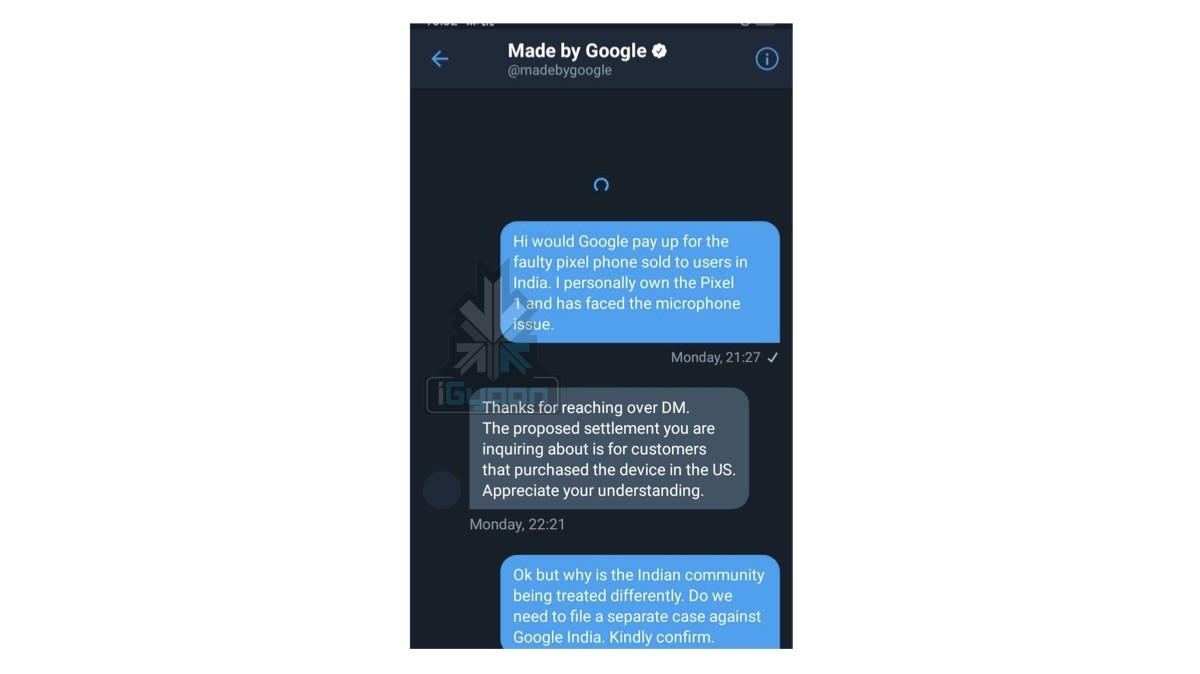Google Is Reimbursing Pixel 1 Owners In The US, But What About India?
Since Google unveiled the first Pixel device back in the year 2016 , it has continued to improve the design and features of the smartphone. However, the company particularly focused on the camera which has outshined most other smartphone cameras in the market. Lately, however, incidents are inadvertently pointing towards the fact that Google might not be paying enough attention to its southeast Asian market. Is there a reason behind this, or is the organization just acting ignorant towards the obvious?
Google Pixel XL
Earlier in May 2019, Pixel users around the world reported a variety of malfunctions with their devices. Further probing led to the discovery of the fact that Google had knowingly retailed Pixel smartphones that had faulty solder connections. Google admitted that some phones (less than 1 percent) exhibited an issue with calling and the Google assistant. The anomaly was traced back to a hairline crack on the audio codec’s solder point/connection.
![]()
As a conclusion to the aforementioned accusation, the company ended up paying US$ 7.25 million to settle a class-action lawsuit filed by “angry” Pixel users. Google settled the case, and as per reports, it owes Pixel Owners an amount of up to US$ 500 per device. Even if owners are not eligible for the complete reimbursement, some money is surely arriving their way. Except, the company is reimbursing solely US-based Pixel smartphone owners. No, India isn’t on the list. A screenshot sent to us by an anonymous Indian Pixel smartphone buyer clearly depicts the attitude of the company towards the consumer base.
A noteworthy point is that the American technology giant was also receiving reports from countries other than the United States, including India. However, Google has not released any statement regarding refunds for India-based Pixel smartphone owners or any other country for that matter. Is it because of a selfish motive, or is it just a part of the company’s plan to tackle this situation in the best way possible?
![]()
A major factor why Google is reimbursing US-based Pixel users can be the enforcement of consumer laws in the United States. The FTC (Federal Trade Commission) of the US puts forward laws that aim to curb unfair, deceptive and fraudulent business practices by collecting complaints and conducting investigations. It is highly probable that in order to avoid such a situation, Google may have decided to take the “refund” road. On the other hand, Consumer laws in India are not enforced as strictly as compared to selective other countries, which may be a probable reason for the same.
Pixel 3 XL
Another point that can be taken into consideration is the number of Pixel devices being sold by Google in both the regions. Talking about US, Google Pixel is one of the fastest growing brands as of February 2019. Even though the company’s current Pixel 3 flagship lineup hasn’t really made a dent in the market, the company maintains a strong position in the United States.
![]()
In contrast, Google has not really managed to retail a whole lot of Pixel devices in India. This may be because of the higher price point of Pixel smartphones in India as compared to the States. For instance, the Google Pixel 3a retails for US$ 399 in the US. Roughly converting the price to INR yields an amount of INR 27,900, which is miles apart from the price it is being actually retailed in India i.e. INR 39,999. When a lot of consumers prefer smartphones from Chinese brands that offer more value-for-money, it is less likely that premium brands can make a greater impact in the market. For the same reason, it is possible that Google wants to hold its spot in the US Market.
![]()
Also Read: Eleven New Apple iPhone Models Listed Online On The EEC Database
In spite of all facts, figures and speculations, there might be a slight possibility that once an increased number of reports and conflicts start pouring in, Google might consider a similar way out of the “Pixel” situation in India. However, no official statement from the company has been received as of now, indicating that Google may act dry on this particular incident.

























 ! For i
! For i